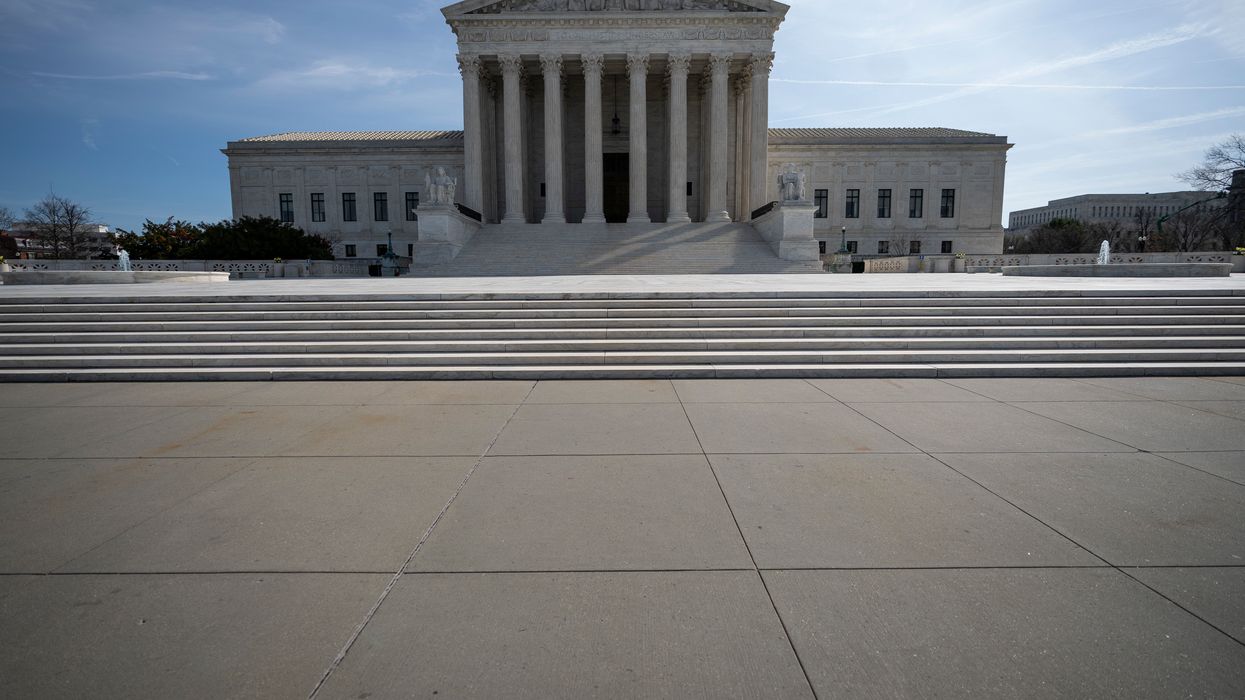The U.S. Supreme Court's decision on an important absentee voting case from Pennsylvania means that, for now, mail-in ballots will have more time to arrive and be counted in this key swing state. That could have a significant impact on the election, but this might not be the last word from the high court.
The justices were reviewing a Pennsylvania Supreme Court decision, Pennsylvania Democratic Party v. Boockvar. Many commentators had expected the Supreme Court to stay that decision, as requested by state Republicans, and in so doing possibly address difficult questions about the meaning of some key provisions in the U.S. Constitution. But with only a few weeks to go before the election, and on a 4-4 vote, the Supreme Court avoided reaching the underlying questions. The state ruling will stand for now.
Under Pennsylvania law, absentee ballots must arrive by 8 p.m. on the day of the election. But during the June primary, election offices were overwhelmed, thanks to Covid-19. Nearly 20 times the expected number requested to vote absentee. Thousands didn't receive their ballots in time to return them by Election Day.
In response, the Pennsylvania Democratic Party and others asked the state Supreme Court to permit absentee ballots postmarked by Election Day in the general election to be received several days later. The Pennsylvania court agreed. It also said mailed ballots received by the third day after Election Day even without a legible postmark should be presumed to have been mailed by Election Day unless evidence established otherwise.
The state court relied on the Pennsylvania Constitution's "Free and Equal Elections" provision, which protects "a voter's right to equal participation" in the state's electoral process. Essentially, it said absentee voters should not be disenfranchised by delays beyond their control, as long as those voters have actually cast their votes by the same deadline applicable to voters who vote in person. A secondary though critical element of the court's ruling was that Pennsylvania's election process (like the process in every state) already provides time after Election Day for officials to count other ballots that arrive later, including ballots of military and overseas voters.
Indeed, there's a compelling argument that allowing military and overseas voters to cast an absentee ballot that arrives after Election Day, while denying other voters the same opportunity, is a violation of the U.S. Constitution's 14th Amendment's guarantee of equal protection of the law. This argument prevailed in Obama for America v. Husted, a 2012 challenge to an Ohio law that provided different dates for military and overseas and domestic voting.
A second part of the state court case is trickier. The court decided to permit the three-day extension of the ballot return deadline to apply to ballots without a legible postmark. The Pennsylvania Republican Party argued to the U.S. Supreme Court that this ruling would permit voters to cast ballots after Nov. 3. But voters do not control whether an absentee ballot return envelope bears a legible postmark. Voters shouldn't be disenfranchised, the court said, "for the lack or illegibility of a postmark resulting from the USPS processing system."
The Supreme Court's denial of a stay doesn't mean it agrees with the Pennsylvania state court on the merits. It's merely a decision not to disturb this state court decision now, with the election only two weeks away. So we wait to see whether absentee ballots arriving by the third day after the election without a postmark will make a difference in the Pennsylvania outcome. If they do, it's still possible the U.S. Supreme Court may have to consider the details.
Steven Huefner is professor of law and deputy director of the election law program at The Ohio State University's Moritz College of Law. Read more from The Fulcrum's Election Dissection blog.



















Why does the Trump family always get a pass?